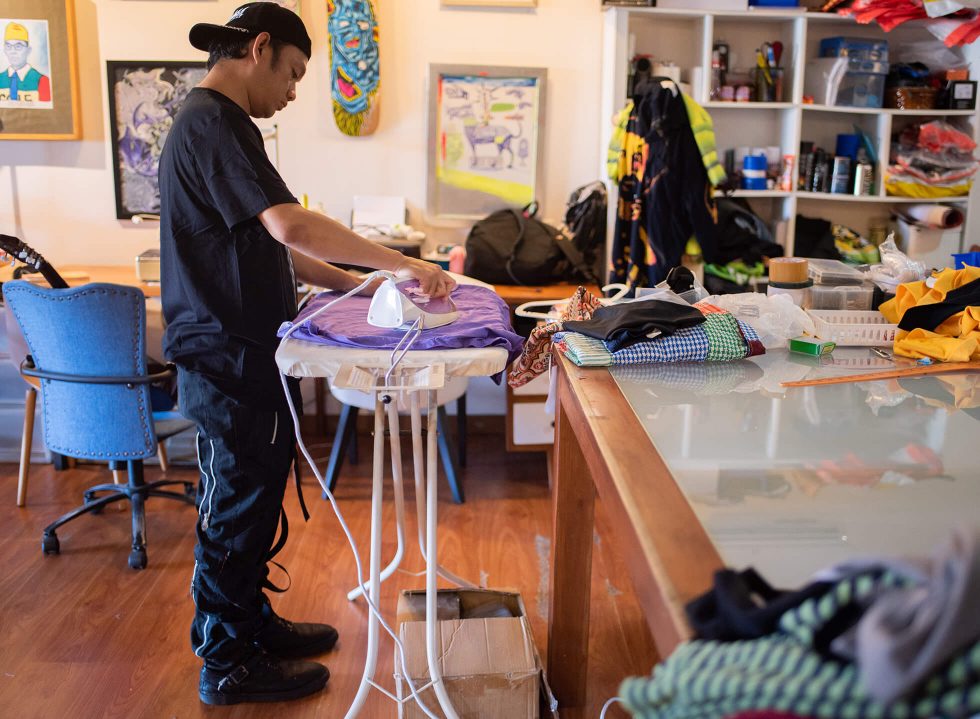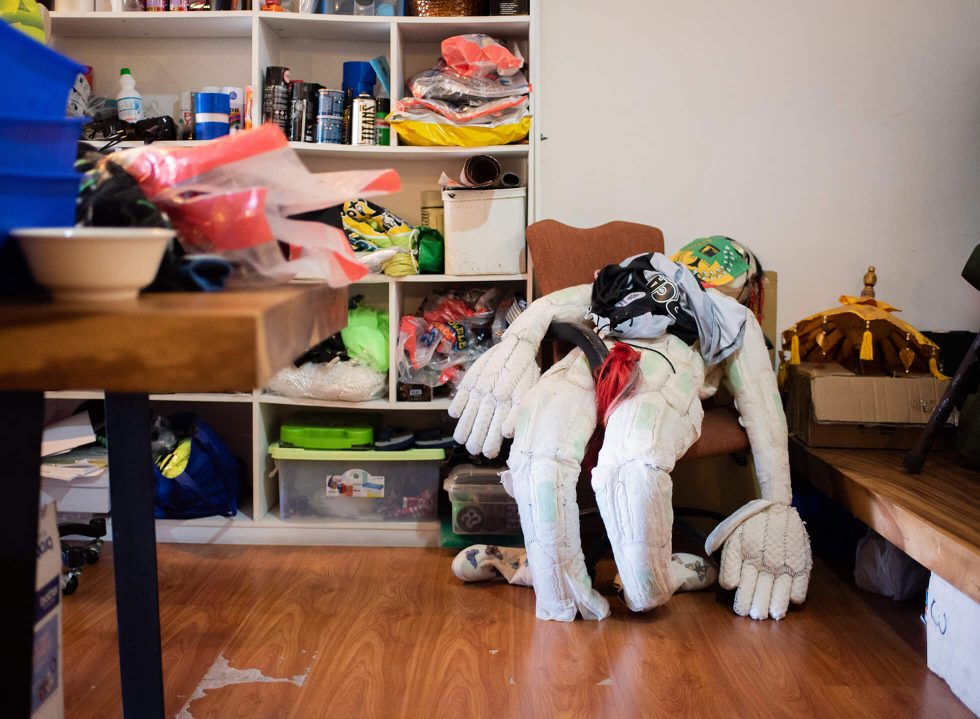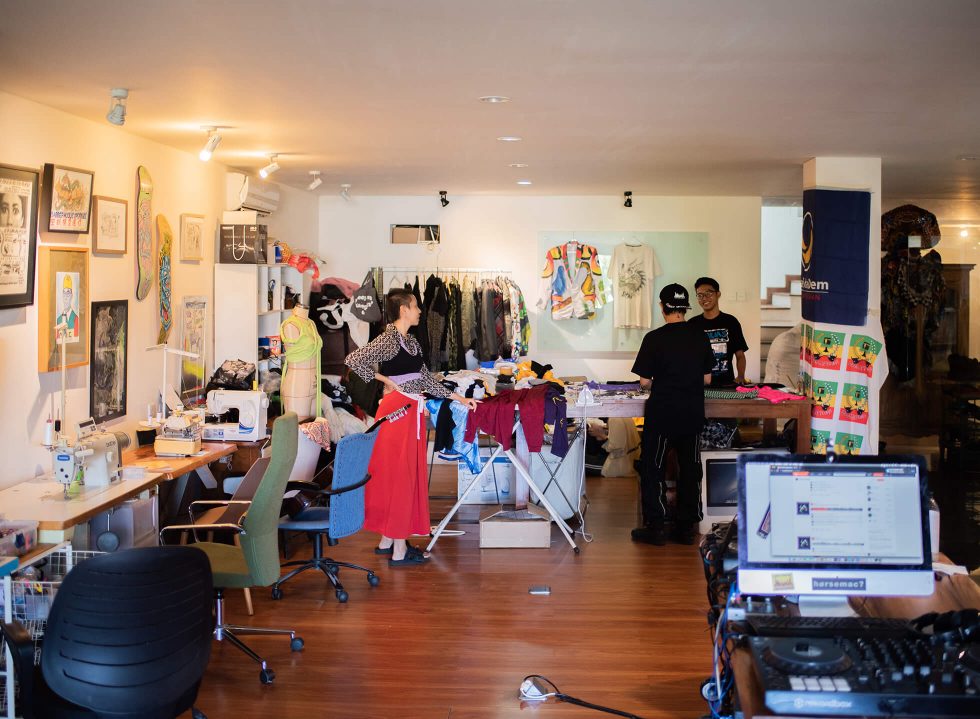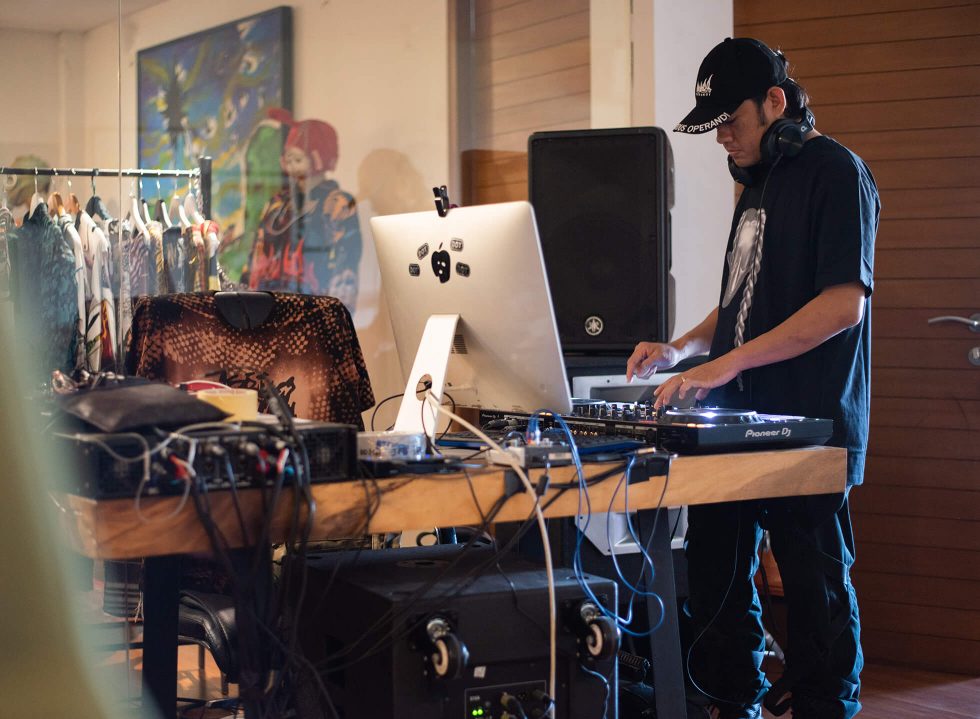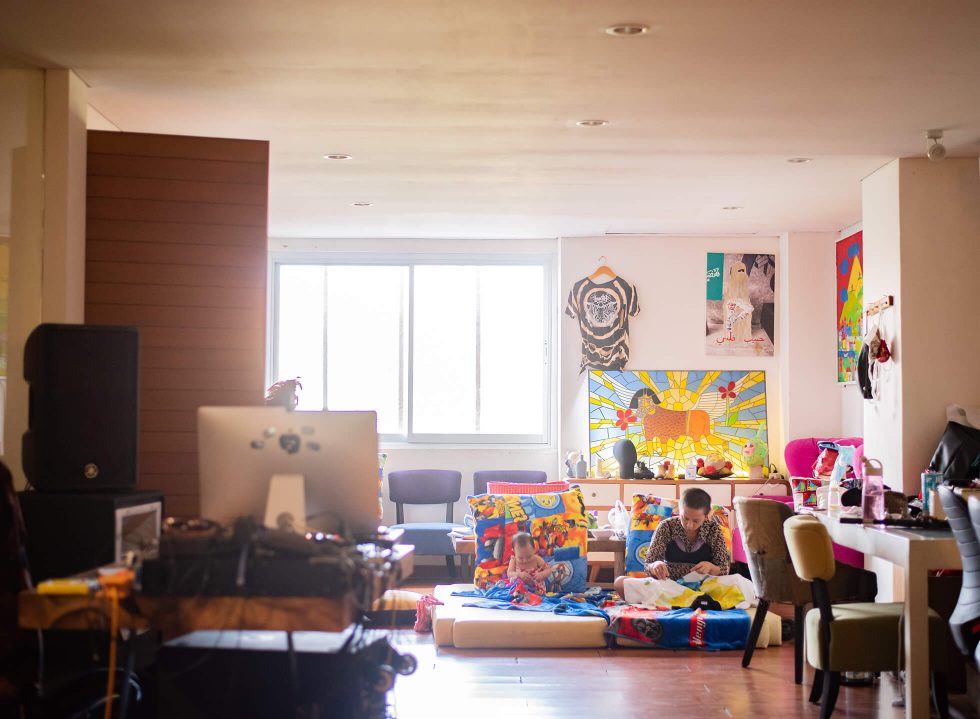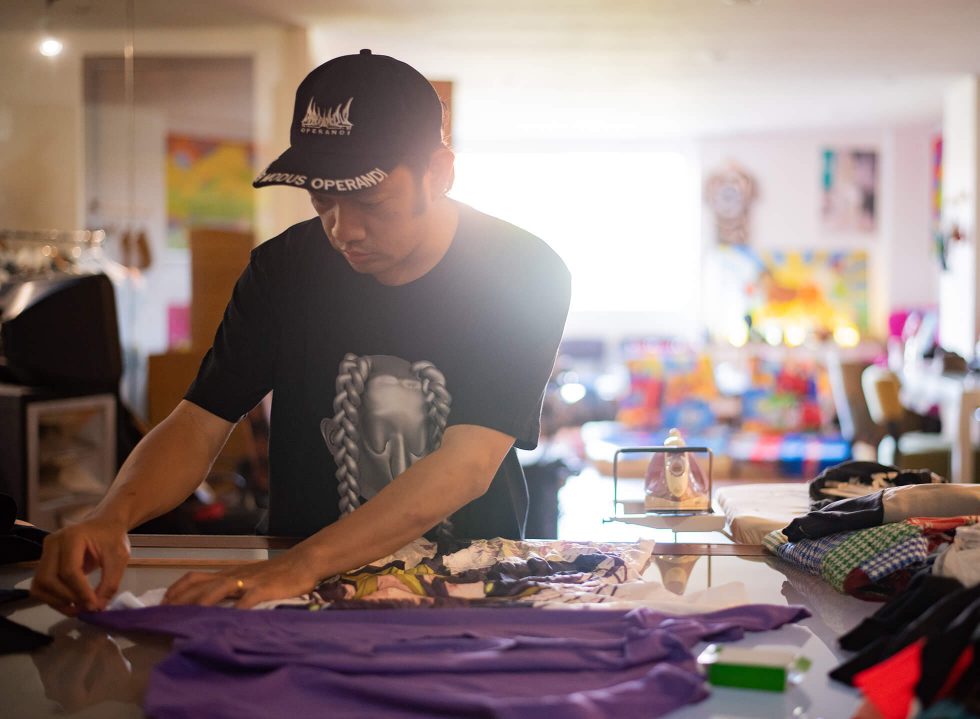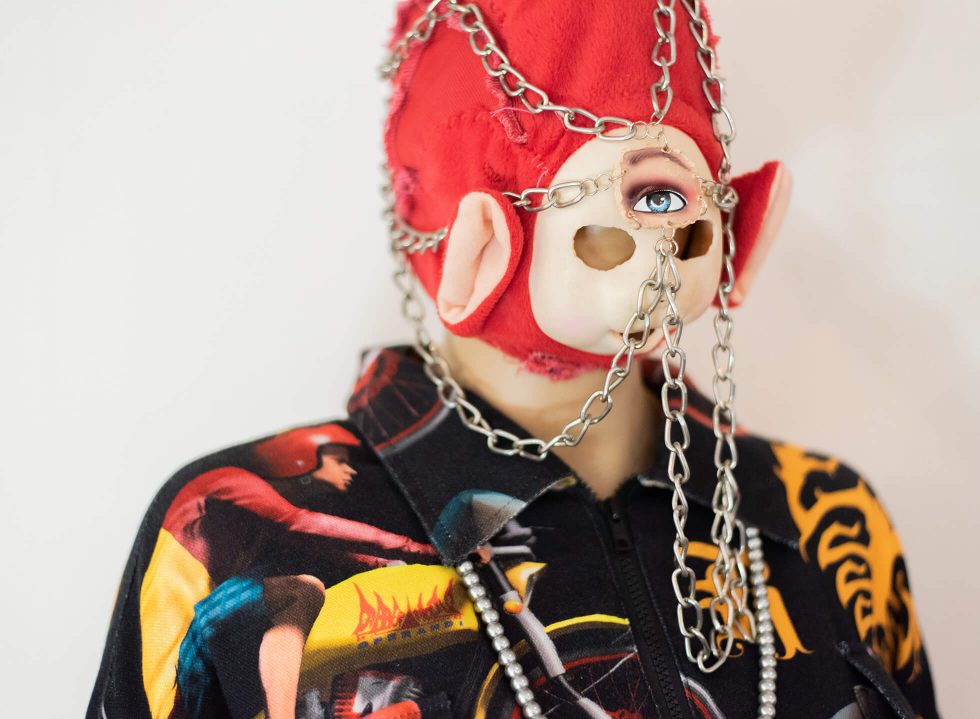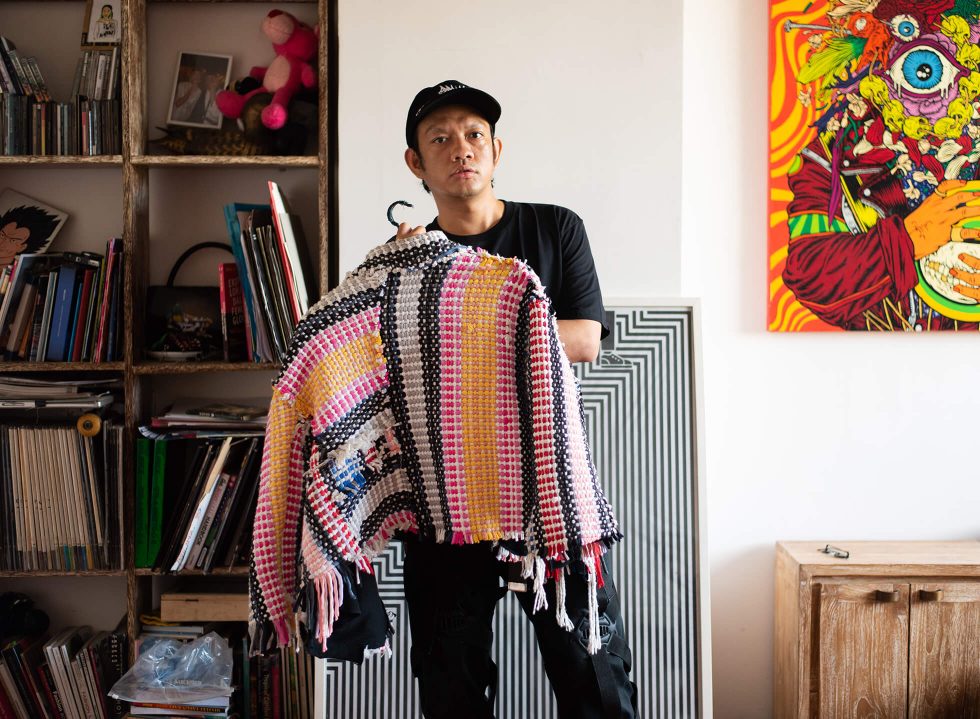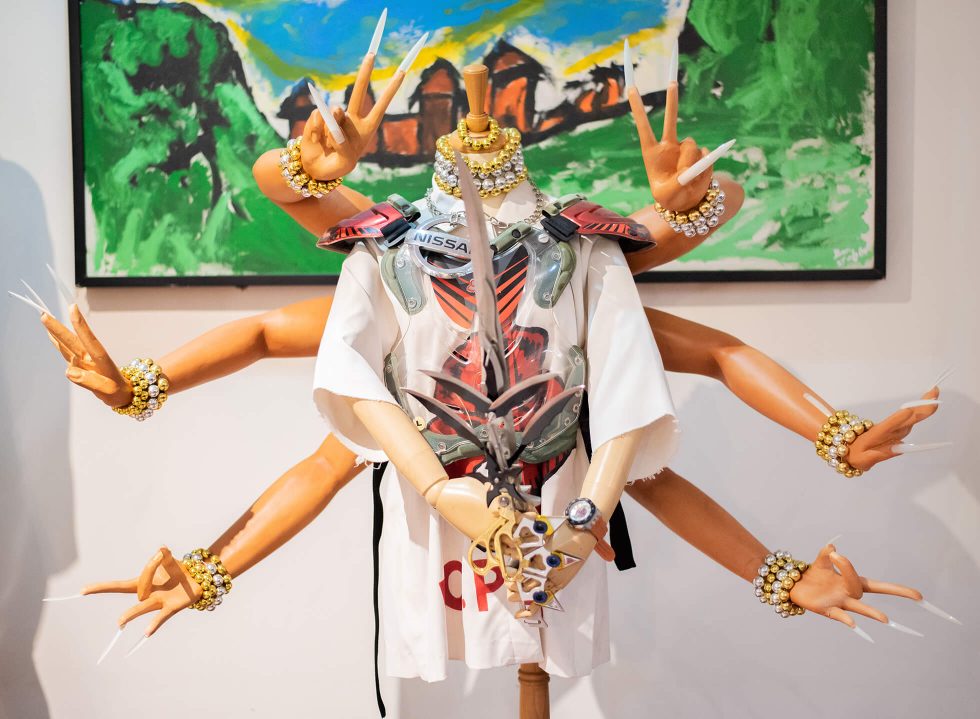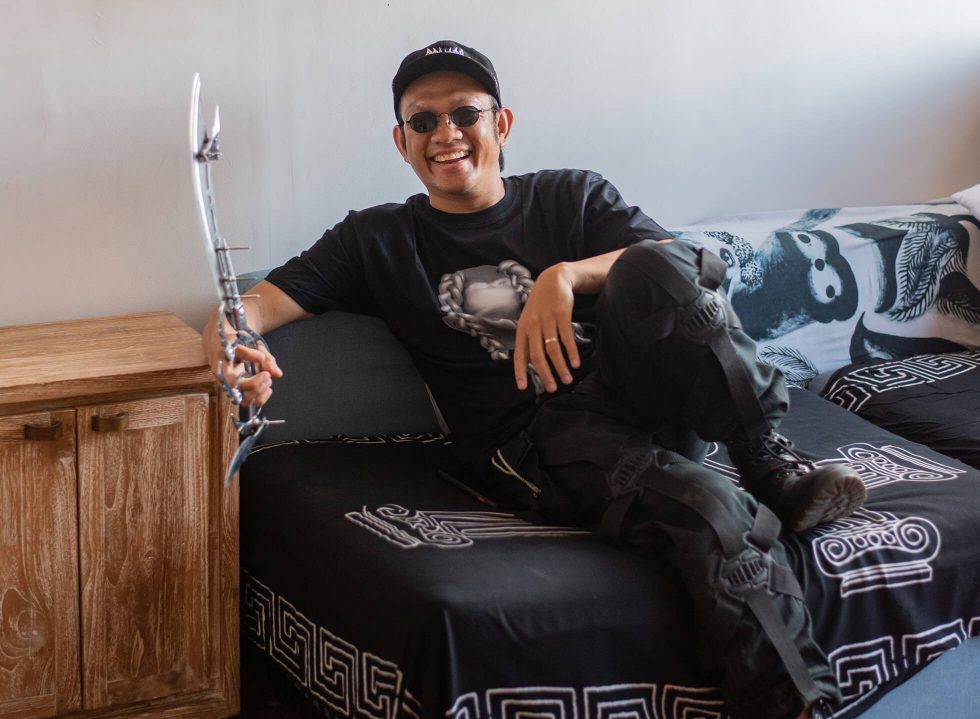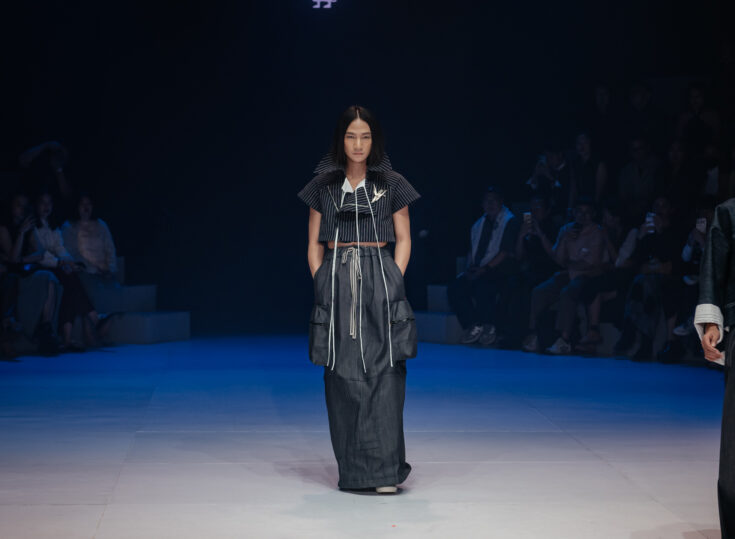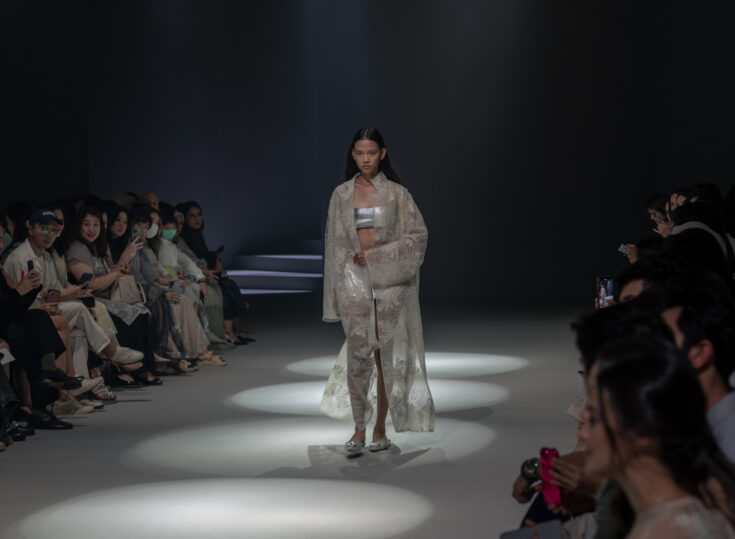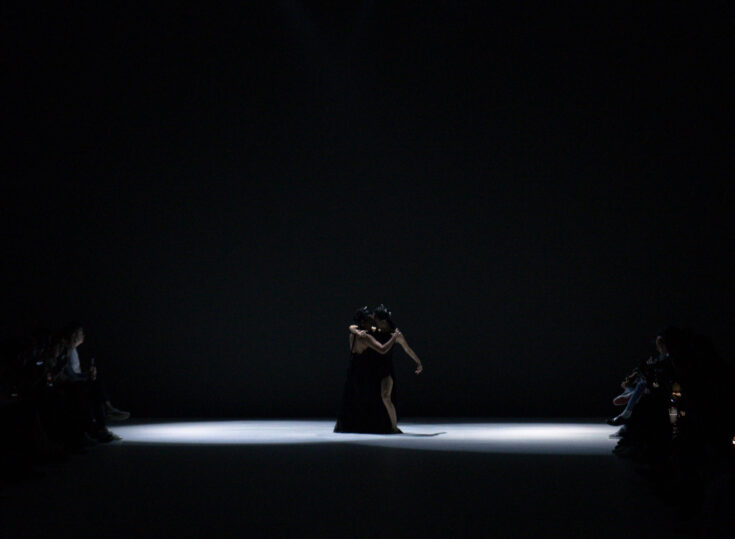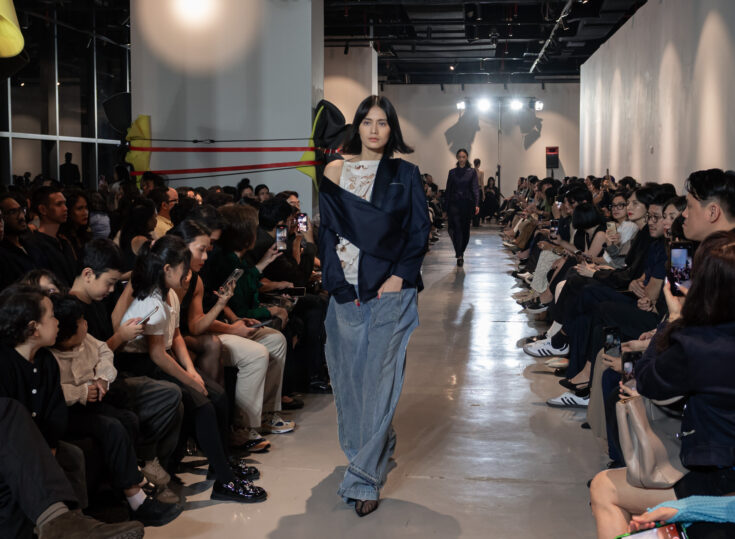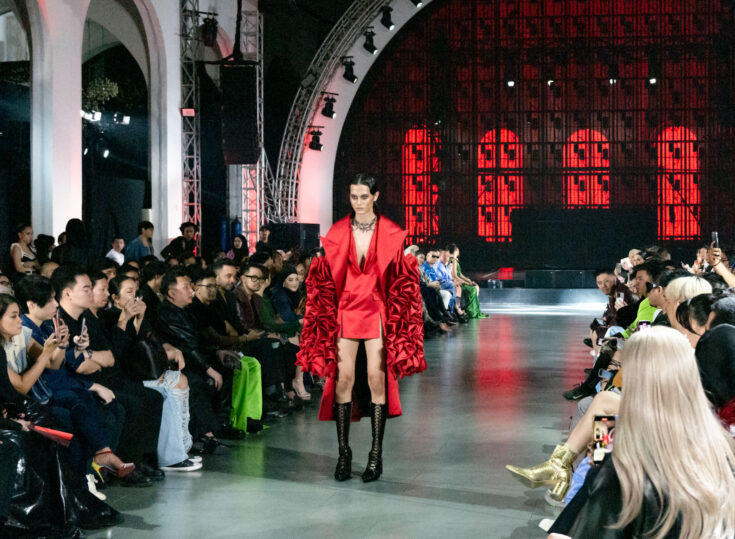The way we dress possess the power of projecting one’s identity in the form of visual language. From expressing individuality to conveying social and political ideas, fashion has long served as a platform of self-expression, which Ican Harem implements as the main objective of his practice as an artist.
Most notable for his comical and eccentric twist of pop-culture elements, he expresses his aim to explore a vast spectrum of subcultures through his works. And though he mostly gravitates towards garments, he prefers not to be regarded as a fashion designer. “I hadn’t even planned on creating a brand at the time. I’ve always enjoyed creating my own clothes and people started to call it ‘Harem’, as something that described my personal style.” His brand, ‘Harem’ was formed fortuitously when he first relocated to Bali eight years ago.
It was Monday mid-afternoon when I met with Ican Harem virtually. Sporting a T-shirt and cap from his collection, he was seated in a black leather chair inside his studio in Sanur, Bali. He was holding a cup of freshly brewed coffee and on his desk was his prized DJ set, an ode to his electronic group, Gabber Modus Operandi.
Growing up in an all-male Islamic boarding school in Sumatra, his eccentric style initially developed out of practical necessity. He recalled his frustration during his school years when his flip flops would always get mixed up among his classmates’ at the mosque. His solution? Stacking and glueing together four to five of them to form a platform of some sort.
He eventually went on to pursue contemporary arts at the Indonesian Institute of Arts in Yogyakarta and veered to fashion as his medium of expression. Being raised in a conservative household in the politically tumultuous 90s era, it was “only through music subcultures such as punk-rock and metal, that I was able to find a democratic space for me to explore self-expression and freedom of speech,” he explained. Today, this experience culminates into an artistry that heed to “a space where politics and music meet, with both being the main elements that affect my creative process.”
One of his most recent projects is ‘Your Future Loundry’, an upcycling fashion movement that, surprisingly, wasn’t born out of an environmental discourse. Through this project, he presents his own approach to upcycling—more through a lens of resourcefulness than anything else. Just as the punk-rock and metal community relied on self-made clothing to convey their personal and political identities, using “whatever items that were available around us,” the artist shared. In addition to representing an alternative way of creating a statement with upcycled clothing, Your Future Loundry is a commentary on overconsumption and fast fashion.
By upcycling old garments into a new piece, Ican aims to replicate the euphoric sensation of purchasing something new. For Your Future Loundry, he starts with sourcing second-hand garments—many of them from local thrift stores or dropped off by friends and acquaintances—to be reworked, picked apart, then pieced back together.
At times, he would further explore his creative flair by dyeing, altering or in a very à la Ican Harem twist, piece fabrics together with unusual items. “I have received and worked with garment pieces spliced together from a piece of sajadah (prayer mat),” he recalls with a laugh. Using patches of tourist souvenirs, band merchandise and graphic t-shirts sewn together to form a whimsical amalgam, each of his upcycled garments are exclusive with no two pieces created the same.
Even with limited resources, Ican is not one to cave to the boundaries that dictates what’s acceptable and what isn’t. Instead, true to his style, he continues to challenge the norm with his unconventional creative approach, proving that he’s a force to be reckoned with.
